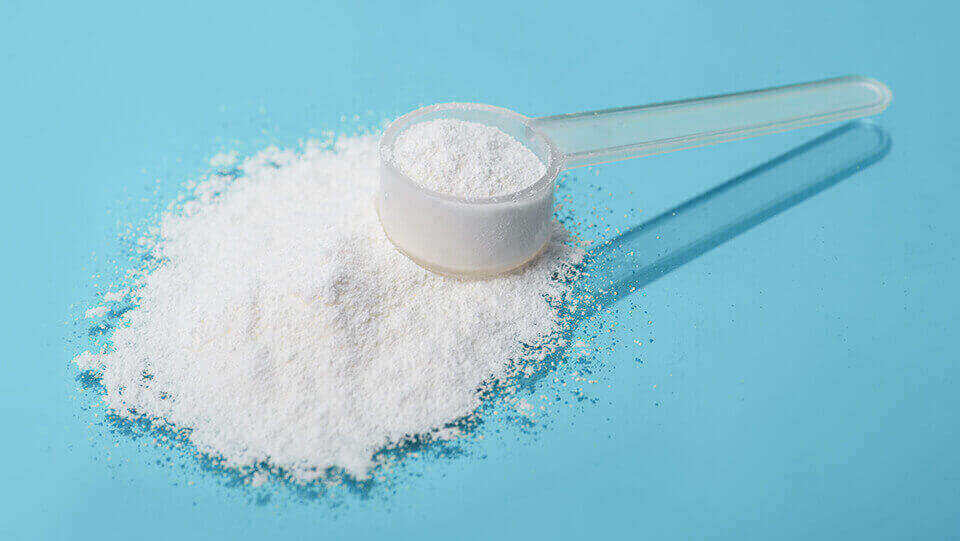
Eiweiß auf Reduktion. Was sollte man über ihn wissen?

BCAAs - who (if at all) should take them?
In recent times, dozens of conflicting opinions could be heard about BCAA supplementation. These concern mainly the time of the day when the supplements should be taken as an optimum, the training macrocycle and the sports disciplines where BCAA supplementation produces the best results.
What makes branched-chain amino-acids perfect for all sports disciplines is their anabolic activity in protein synthesis on the one hand, and the anti-catabolic activity pre- and post-workout on the other. High blood BCAA concentrations indicate glycogen depletion as an energy booster which may lead to muscle catabolism. It is also a sign for the nervous system that fat degradation paths must be activated as an alternative source to obtain energy in the face of glycogen deficits. Therefore, the growth of BCAA blood concentration before or during intense physical activity reduces the risk of muscle protein degradation, which is why these very periods are often recommended as the optimum times for supplementation with branched-chain amino-acids. It is also a good idea to supplement BCAA immediately after working out, especially if you are unable to deliver yourself a portion of wholesome protein to stimulate protein synthesis.
When it comes to the dosage, it is reasonable to assume that one portion is 1g BCAA/ 10 kg of bodyweight. In the MUSCLE GAINING phase, i.e. when you are working to gain muscle mass, you should take the preparation before working out; while if you are in the fat reduction period and cut down on calories in your diet (in relation to your demand), when the risk of catabolism grows, you should consider increasing the supplementation, especially at the crucial times, i.e. after waking up, before a strength/cardio training and during the training.
To sum up: BCAA is particularly effective if used before/after working out and accompanied by low calorie intake; then, it will help you avoid muscle protein catabolism, accelerate post-workout recovery, minimise damage to muscle cells and eliminate DOMS (Delayed-Onset Muscle Soreness).
The information below is required for social login
Sign In
Create New Account